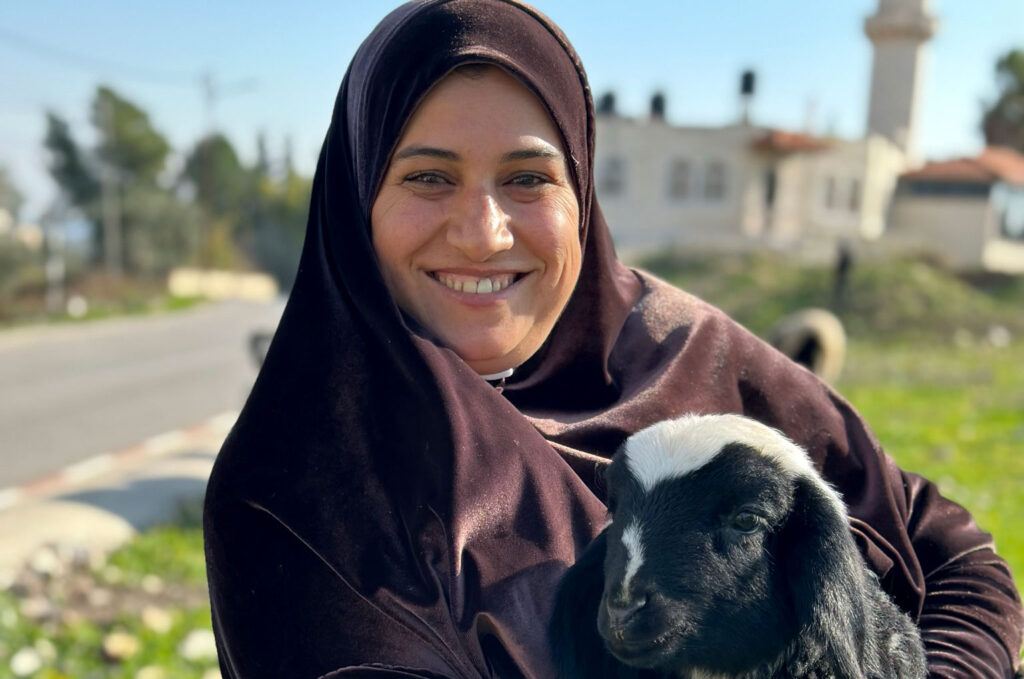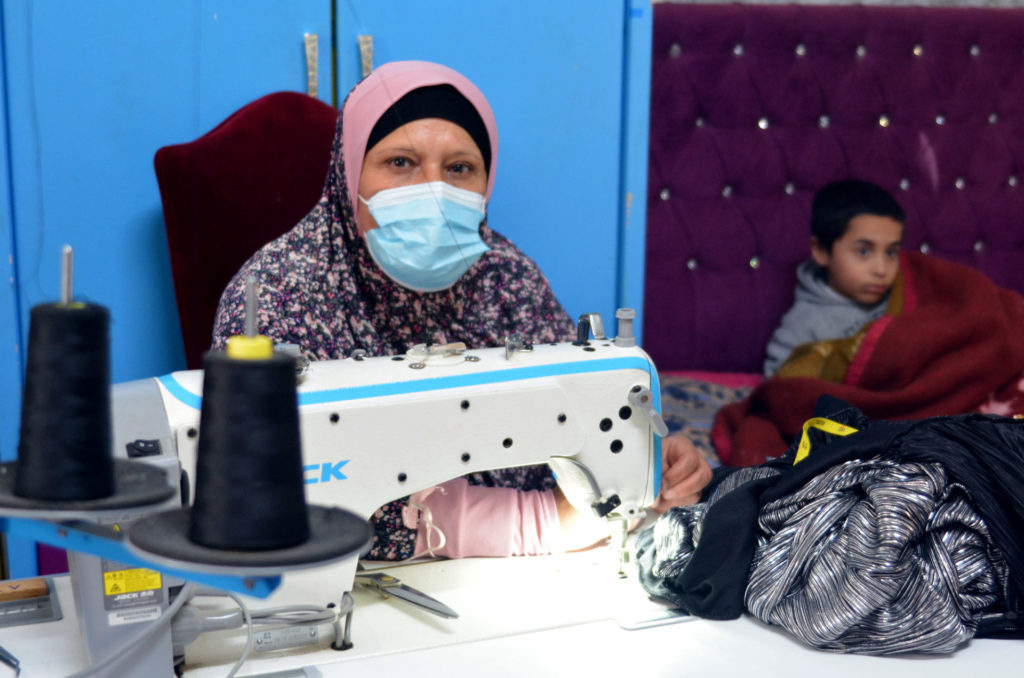Jul, 2011
Health Educator Rana is blunt with her health message to women in Yasouf, Farkha, Teereh, and Marda villages: “You’re responsible for your own body and no one else but you can take care of it.”
Heath educators like Rana were trained through Anera’s Breast Cancer Awareness program to provide comprehensive information about breast cancer and risk factors and to make women understand the importance of self-breast examinations by using tangible examples and modules. The educators also learned how to familiarize women with free mammogram screening services provided by the Ministry of Health.
Anera’s Breast Cancer Awareness program, launched in 2010, has helped 3,638 Palestinian women in the West Bank district of Salfit to protect themselves against breast cancer through outreach programs coordinated in their communities, local organizations, women centers and clinics. Anera has trained primary healthcare providers, community health educators and volunteers who are the key to the campaign, by organizing group sessions, home visits and individual counseling.
“I was a bit reluctant at first to knock on the doors of people I didn’t know, although I was well-trained and ready for that challenge,” explains Rana. “In no time, the information I was giving spread like wild fire and many women from these communities introduced me to new households and facilitated group gatherings.” Rana says the strong network allowed her to persuade many women to go to clinics and get examined.
Anera also published a breast cancer booklet and other materials to provide informational references they could share with others in their family and community.
Maha Harb is one of the most dedicated women to the cause of breast cancer awareness. Her husband is the general director of Qalqilya Hospital’s laboratories and had been encouraging her to go for an exam ever since his hospital got a new mammogram machine. But, she says, she had little information and was hesitant to go.
“We used to think that only when a woman feels a lump in her breast, that she must seek help. That’s not right, because a lump doesn’t always reveal itself in the self-breast exam. We learned that through Rana,” says Maha, who is president of a women’s club and has held breast cancer awareness sessions for its members. “God forbid, if you find something, it can be treated in its early stages, but if it’s something that has grown in time, you’d regret never getting the examination in the first place.”


